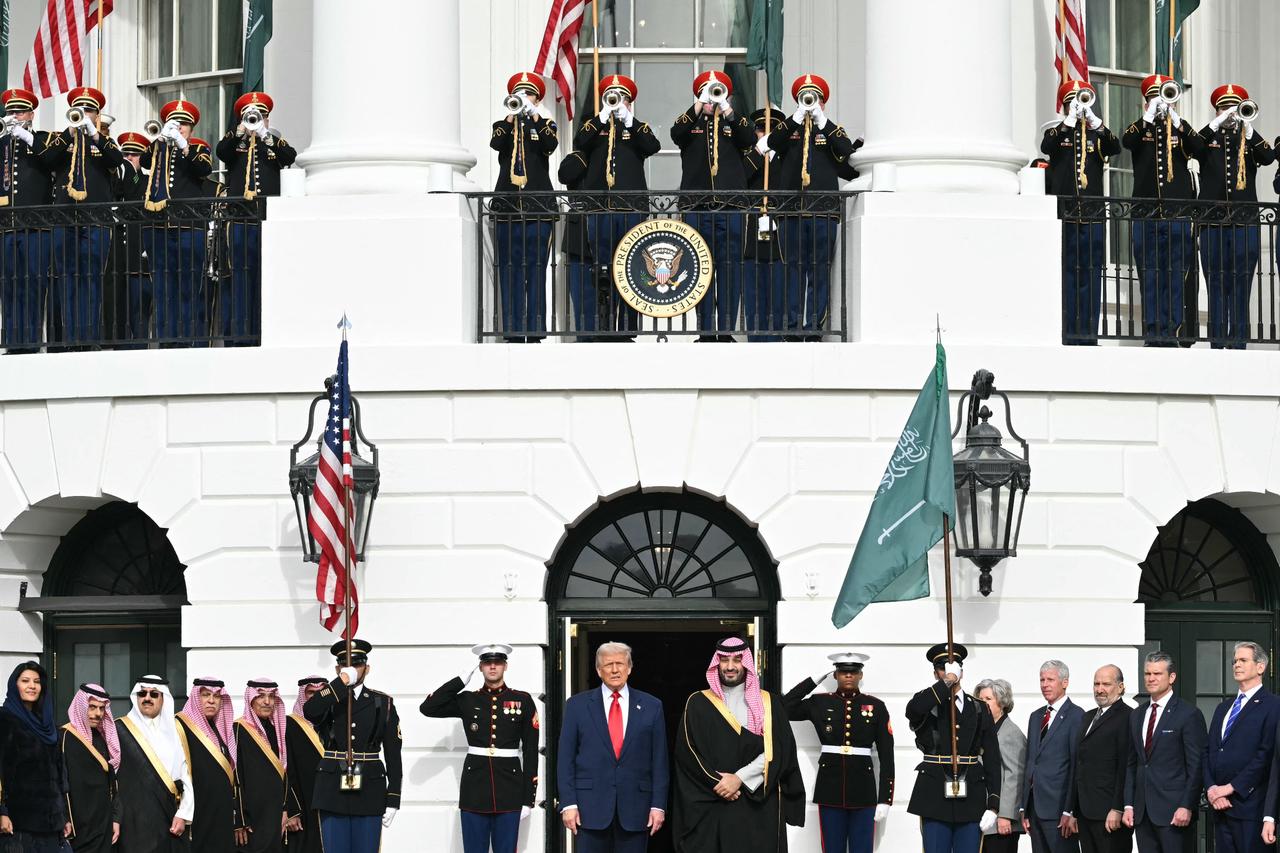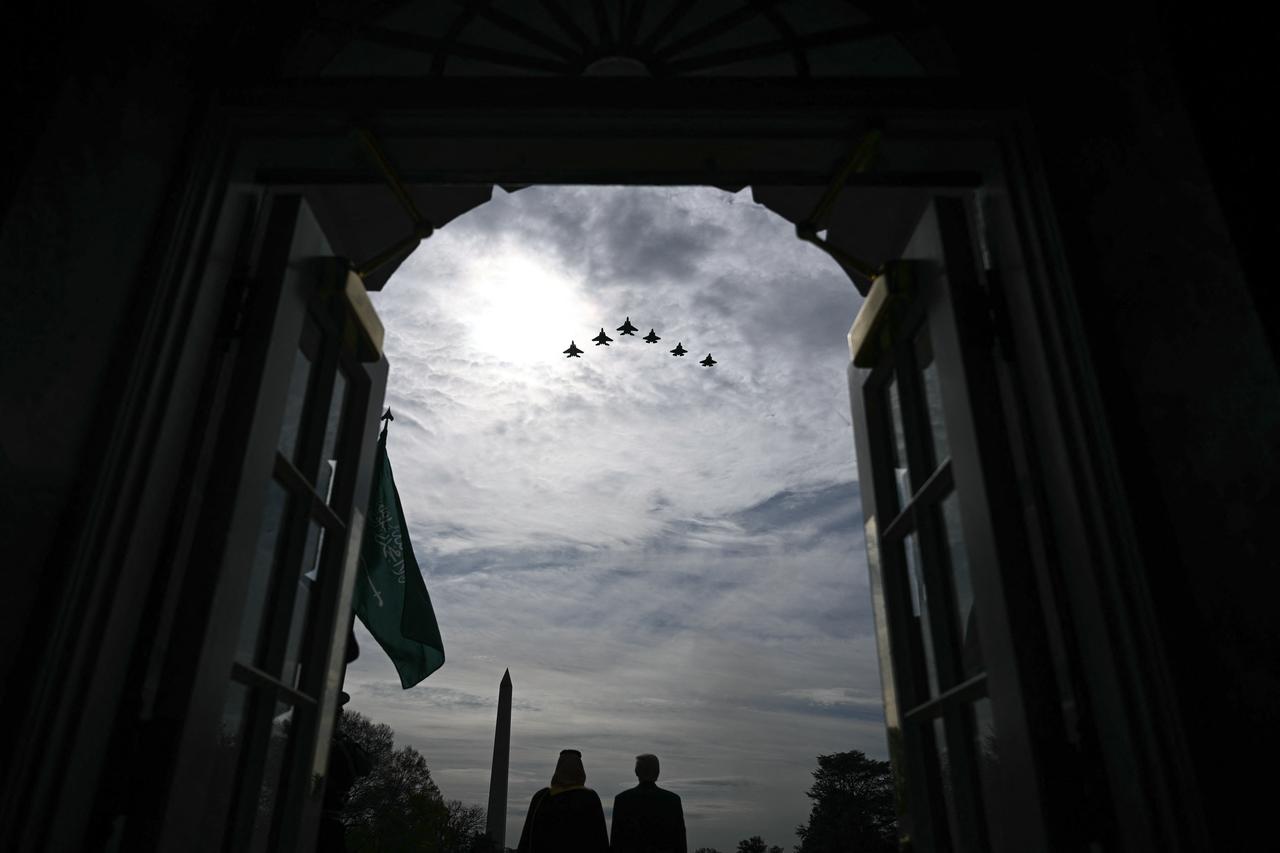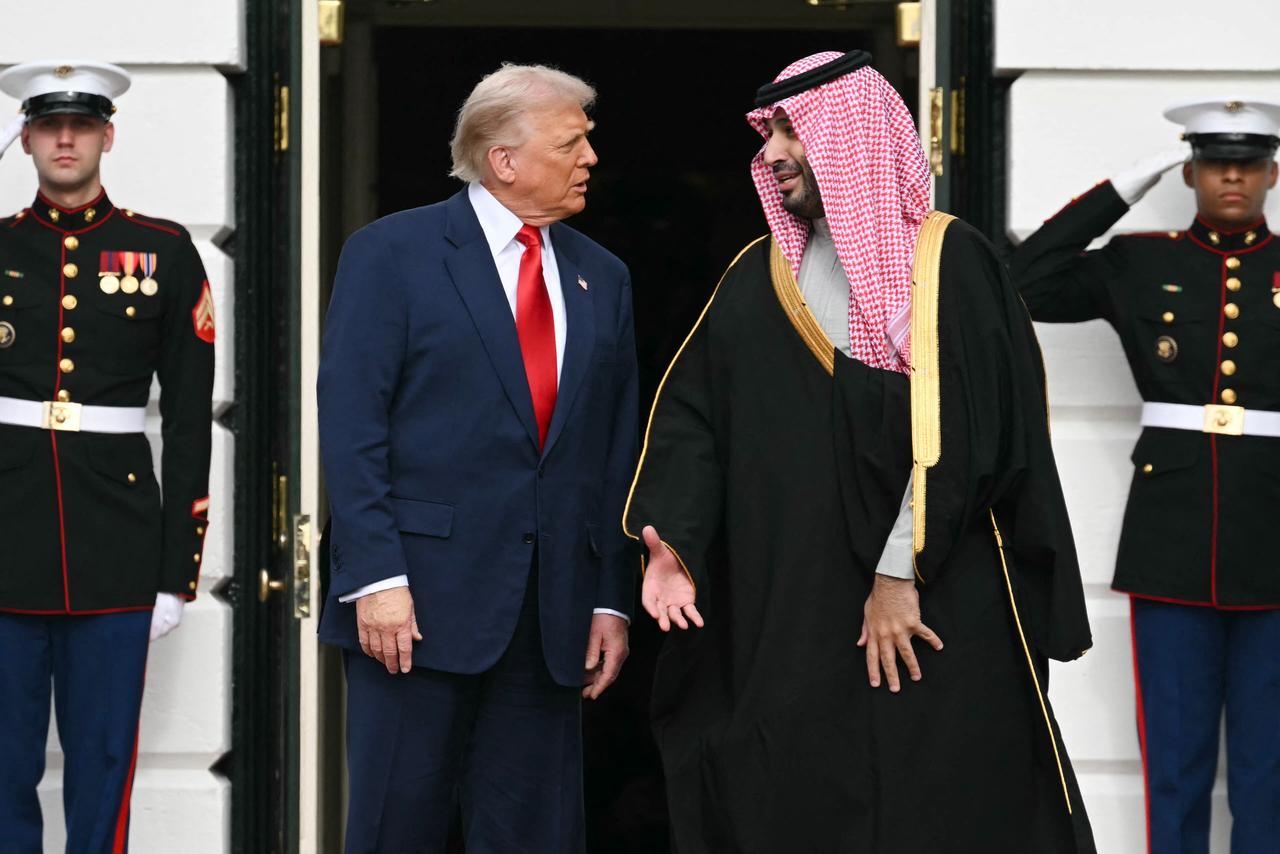
President Trump received Crown Prince Mohammed bin Salman at the White House on Tuesday with an unusually elaborate military ceremony, cementing a diplomatic rehabilitation for the Saudi leader who was ostracized after the 2018 killing of journalist Jamal Khashoggi but now returns seeking advanced weaponry and deepened security ties.
The arrival spectacle exceeded standard protocol for foreign dignitaries. A Marine band performed as mounted officers carried Saudi and American flags across the South Lawn, while F-35 fighter jets—the same advanced aircraft Trump pledged Monday to sell the kingdom—screamed overhead in V formation. The president greeted the crown prince with a handshake and pat on the back before escorting him inside for bilateral meetings.
The visit marks the first time Prince Mohammed has set foot on American soil since 2018, when Saudi government agents killed and dismembered Khashoggi, a Washington Post columnist living in Virginia, inside the kingdom's Istanbul consulate. A U.S. intelligence report released during the Biden administration determined that the crown prince likely ordered the killing, though he has denied prior knowledge while accepting responsibility as the kingdom's de facto ruler.
Trump's embrace of the Saudi leader stands in sharp contrast to his predecessor's approach. President Joseph R. Biden Jr. had campaigned in 2020 on making Saudi Arabia a pariah state, though he eventually met with Prince Mohammed in 2022 when seeking help with oil prices. Trump, however, has consistently treated the crown prince as a business partner rather than a diplomatic liability.

The weapons sale Trump announced represents a significant escalation in U.S.-Saudi military cooperation, though it faces potential obstacles. The deal requires congressional approval and must overcome production bottlenecks at defense contractors. Pentagon officials have raised concerns about transferring sensitive stealth technology to a nation that maintains security partnerships with China, creating risks that Beijing could eventually access American military secrets.
Israel, a close U.S. ally, is expected to object to providing Saudi Arabia with such advanced capabilities. The F-35 sale is part of a broader package of agreements under negotiation, including artificial intelligence cooperation, a mutual defense pact, and eventual Saudi access to American nuclear technology.
Prince Mohammed arrived with his agenda partially fulfilled and plans to press for more during a black-tie dinner with business leaders and lawmakers Tuesday evening. On Wednesday, he will accompany Trump to a business investment conference in Washington and meet with House Speaker Mike Johnson and other congressional leaders.

The visit coincides with expanding commercial relationships that blur lines between state diplomacy and private enterprise. The White House plans to highlight Saudi Arabia's earlier commitment to invest $600 billion in the United States, an agreement announced when Trump visited Riyadh in May during his first major overseas trip of his second term.
This week, the Trump Organization and its Saudi development partner, Dar Al Arkan, unveiled a cryptocurrency real estate venture allowing investors to purchase stakes in Trump-branded properties through digital tokens traded on blockchain platforms. Separately, Jared Kushner, the president's son-in-law, operates a private equity firm that has received $2 billion from a Saudi fund led by the crown prince.
White House officials emphasized that Tuesday's event does not constitute a state visit because Prince Mohammed is not technically Saudi Arabia's head of state—his father, King Salman bin Abdulaziz, holds that title. Nevertheless, the ceremony's scale matched or exceeded typical state visit protocols.
Trump administration officials may use the meetings to encourage Saudi Arabia's participation in the Abraham Accords, the diplomatic framework that normalized relations between Israel and three Arab nations during Trump's first term. The administration is riding momentum from an October truce it brokered between Israel and Hamas, and Monday's U.N. Security Council approval of Trump's Gaza peace plan.
However, such proposals face near-certain rejection from Prince Mohammed, who remains unmoved by the fragile Gaza cease-fire and has shown no willingness to shift his position on Israel normalization without substantial concessions regarding Palestinian statehood.
The crown prince's international standing has largely recovered from the Khashoggi scandal. After months of corporate executives and world leaders avoiding Saudi Arabia following the killing, visitors gradually returned. Japan's then-Prime Minister Shinzo Abe met warmly with Prince Mohammed in 2019, signaling the beginning of his diplomatic rehabilitation.
During Trump's May visit to Riyadh, the president declared that "over the past eight years, Saudi Arabia has proved the critics totally wrong." Prince Mohammed has since overseen significant social liberalization in the kingdom, particularly expanding women's rights, while simultaneously tightening political control and suppressing dissent.
Amnesty International released a statement last week asserting that "no justice" has been achieved for Khashoggi, noting that the Trump-Prince Mohammed meeting occurs as "human rights conditions in both Saudi Arabia and the United States continue to worsen."
The Saudi leader's primary focus has shifted from consolidating power to economic diversification under his Vision 2030 program, which aims to reduce the kingdom's dependence on oil revenues before the decade's end.